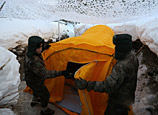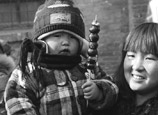
NEW GOVERNMENT
While Netanyahu's Likud party, which ran on a joint list with the right-wing Yisrael Beiteinu party, emerged as the largest party after the elections with 31 mandates, it is a significant lower number than the 42 that the two parties held before the elections and much lower than he has aimed and hoped for, hence, the building of the coalition turns tougher.
Netanyahu has stated that he wants to widen the coalition government indicating he will have to include either the center- left Yesh Atid party under former newsman Yair Lapid, or the right- wing Habayit HaYehudi party under Nafatali Bennet.
Yesh Atid received 19 mandates in the elections, and when it comes to foreign policy and especially the Palestinians, the positions of Yesh Atid are more in line with the right-wing of Israeli politics.
Brom said that he does not think that "there is a high probability that this new coalition, government assuming that it will be based mostly Likud and Lapid's party, will be capable of completing an agreement."
"Another partner in this coalition will be Bennet's party then the probability is even lower," Brom added. Bennet has called for Israel to annex parts of the West Bank.
Podeh said Obama will face a very complicated situation not only due to Israel's continued settlement expansion, which the Palestinians argue is being conducted on land where they aim to establish an independent state.
But Podeh added that, on the other side, Abbas has some serious legitimacy problems. "He is being challenged by Hamas and they are now talking about a possible reconciliation, so these are the internal Palestinian policy problems and they might affect the situation as well."


















 Most feared Spring Festival questions
Most feared Spring Festival questions


![]()
